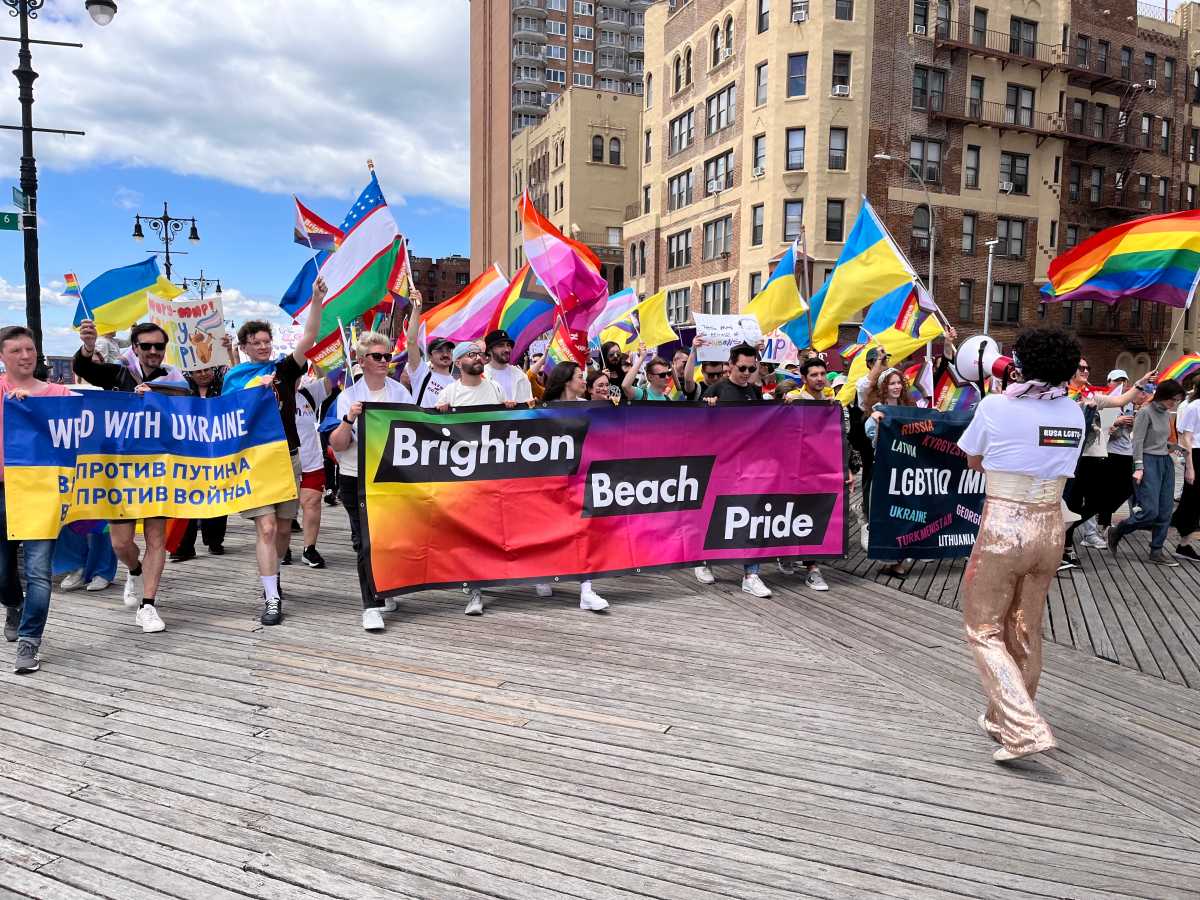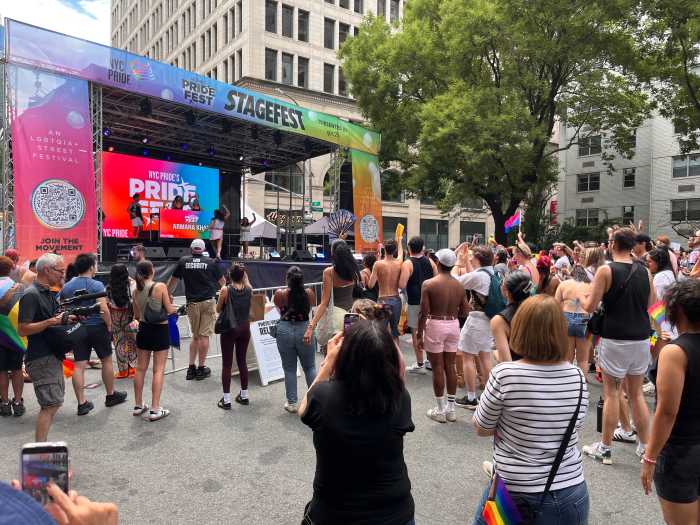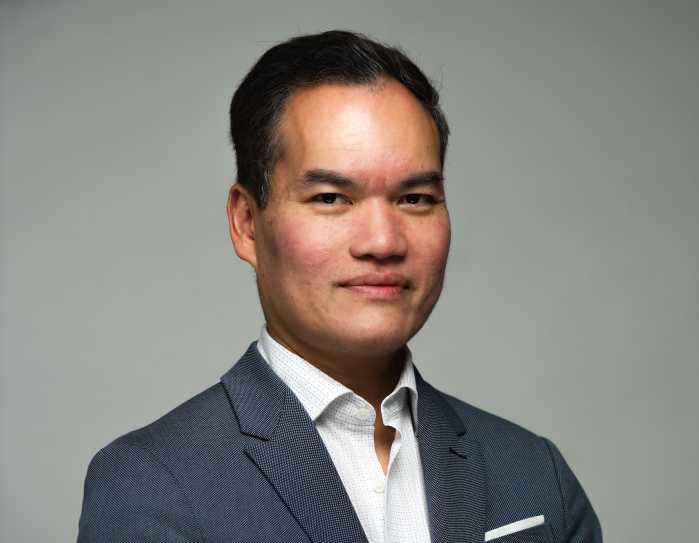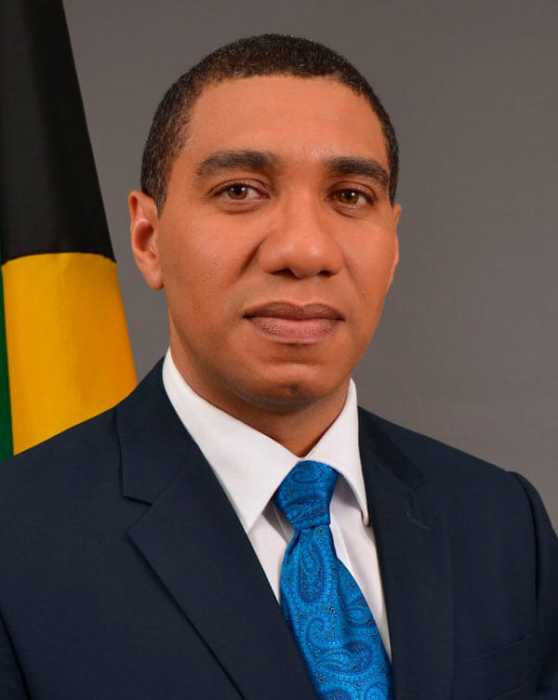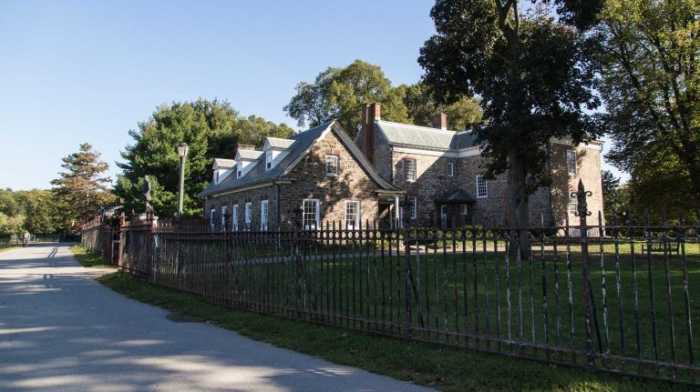Led by the Russian-speaking LGBTQ group RUSA LGBTQ+, hundreds of people celebrated Pride along the sleepy southern Brooklyn coast on May 19 at the eighth annual edition of Brighton Beach Pride.
Marchers donned “Brighton Beach Pride” hats and hoisted large Rainbow Flags and Transgender Flags as they marched from Coney Island to Brighton Beach on the Riegelmann Boardwalk before concluding with a spirited rally.
The event represented the latest annual display of Pride in the conservative-leaning neighborhoods of southern Brooklyn — including Brighton Beach, Sheepshead Bay, and Coney Island — where so many eastern European immigrants have called home for decades that the area is known as Little Odessa, named after the coastal city in Ukraine.
Beginning in 2017, RUSA LGBTQ+ — a network of Russian-speaking LGBTQ individuals and people from former parts of the Soviet Union — started hosting an annual Brighton Beach Pride event to empower LGBTQ immigrants in the area and bring queer visibility to the neighborhood.
The event has largely remained the same over the years — with the same start time, route, and rally — but the themes often depend on the state of affairs around the world. While Russian Flags were once seen at Brighton Beach Pride, those were replaced by Ukrainian Flags in the aftermath of Russia’s invasion of Ukraine. As usual, marchers strongly criticized the Russian government and President Vladimir Putin on a number of fronts, including anti-LGBTQ policies as well as the war in Ukraine. This year’s theme was “Our Love is not Extremism.“
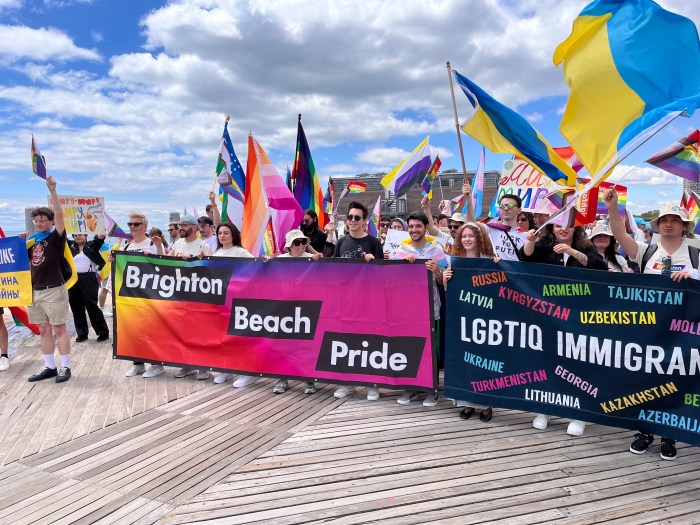
“We chose this theme because last year, Russia declared behind closed doors their sham court decision that the LGBTQ movement is an extremist organization,” said Maxim Ibadov, a queer immigrant from Russia who led the march for a second straight year. “For us, everything that Putin is doing — from banning gender transition to labeling us as extremists to invading Ukraine — that is all fascism.”
Adam Eli, the founder of Voices4, a non-violent direct action activist group seeking queer liberation, delivered remarks at the rally in a show of support for LGBTQ immigrants. Eli, whose great-grandparents fled Russia due to anti-Jewish violence, also held up a photo of Evan Gershkovich, a Jewish Wall Street Journal reporter who has been held in Russia for more than a year, and paid tribute to the late Cecilia Gentili, a New York City-based trans activist and immigrant who died in February.
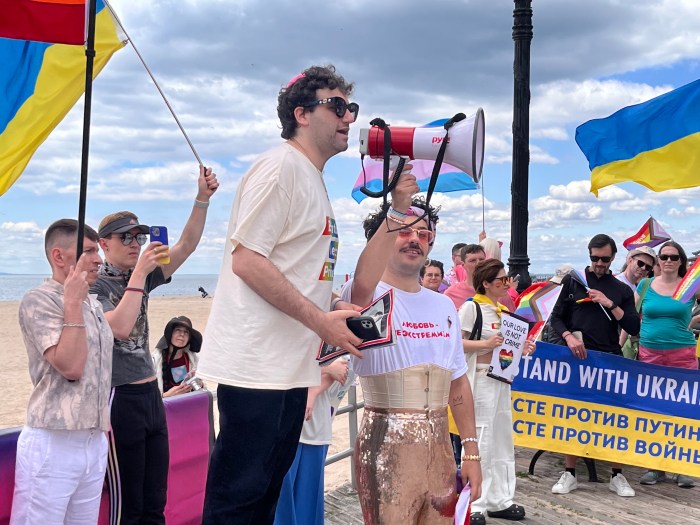
“By standing here, I want to say that there are Americans, like myself, who truly care about immigrants, refugees, and asylum seekers,” Eli said. “There are Americans who deeply, deeply care about queer refugees, immigrants, and asylum seekers.”
Between speakers, the crowd enjoyed a performance by Rude Mechanical Orchestra, which is a radical protest band known for playing at demonstrations in the city. The band played music throughout the march and performed Woody Guthrie’s “All you Fascists Bound to Lose” during the rally.
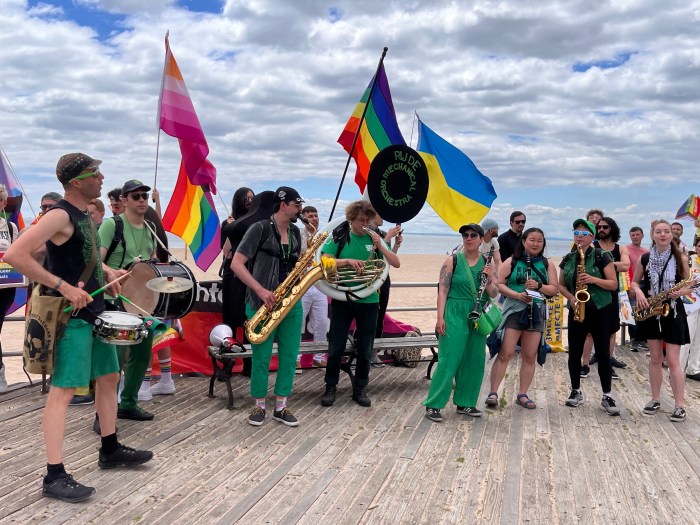
Ann Northrop, an activist and journalist who co-hosts “Gay USA” and, like Eli, has attended Brighton Beach Pride in the past, also delivered remarks at the rally. Northrop said she bonded with RUSA LGBTQ+ several years ago when there was widespread international outrage over the horrific treatment of queer people in the Chechnya region of Russia.
“I have one major message for you today — and that is, what a beacon of hope you are for people everywhere,” Northrop told the crowd. “This seems like a very casual, easy stroll down the boardwalk, colorful — with great music — but this will be seen around the world and people who are living in terror and isolation will take home what they see here. If you watch news coverage, you see Rainbow Flags in all sorts of places you wouldn’t expect it: in refugee camps in Kenya, in the streets of Moldova, and bravely, all over Moscow. You are the model for that. You are the people giving them hope. It is crucial that you be out here and speak out, because you are making hope and progress possible all over the world.”
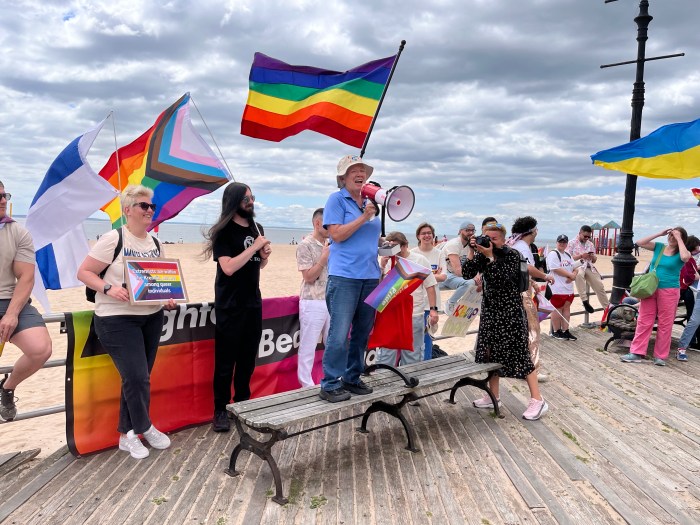
Brighton Beach Pride co-founder Yelena Goltsman, who was born in Kyiv and left Ukraine in her 20s — when her homeland was part of the Soviet Union — has been a mainstay at the march from the very beginning. Goltsman reflected on the trajectory of RUSA LGBTQ+ and Brighton Beach Pride since its inception.
“There are some subjects that are always subjects at Brighton Beach Pride,” Goltsman told Gay City News after the rally. “One of them is that we’re talking to people here who are maybe not very friendly to LGBTQ people, and by our constant presence every year, we want to instill in people around understanding that we are just like them — whether they want us or not, or whether they’d like us to go away. We’re never going to go away.”
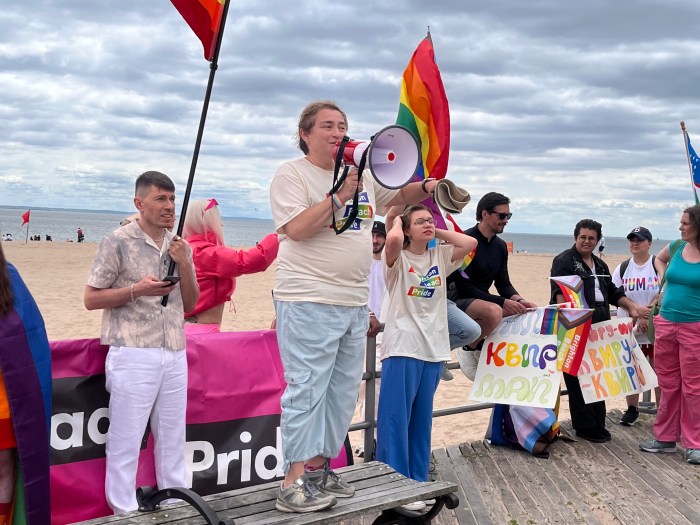
However, Goltsman said, “the world and politics give us more subjects,” including the war in Ukraine and attacks on transgender rights. Many of the signs, T-shirts, and flags in the crowd reflected many of the themes of the day. One sign stated that extremists “are in the Kremlin, but not among queer individuals,” while a different sign read the phrase “our love is not a crime.”
While RUSA LGBTQ+ has served as a resourceful organization for queer Russian speakers who are primarily based in New York City, it became a non-profit organization last year.
“We are able, because of that, to hold many more events, to help more people,” Goltsman said. “It has definitely made a very significant difference.”

